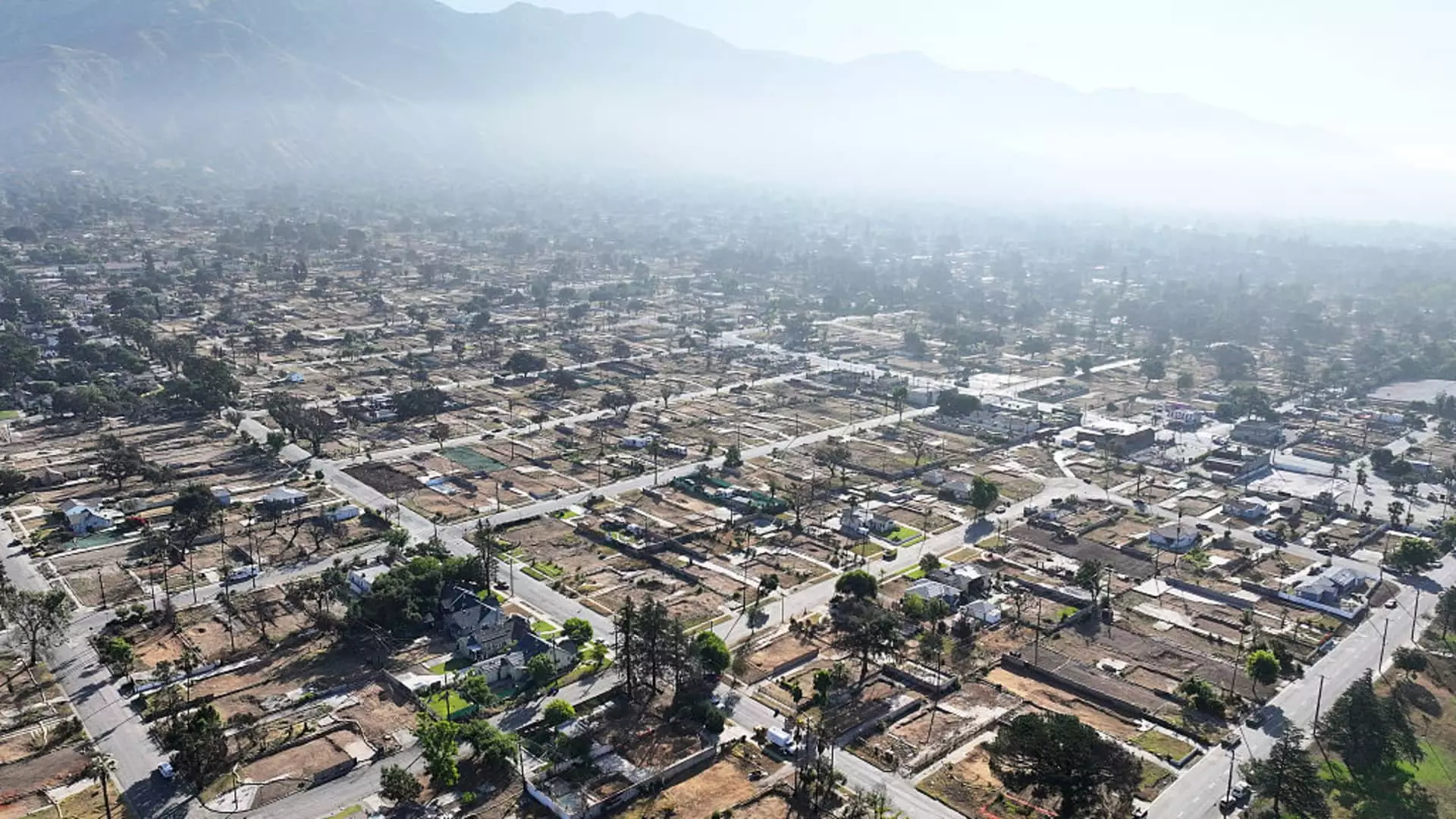In the wake of California’s recent wildfires, an unsettling truth has been laid bare: homeowners often find themselves at the mercy of a financial system that prioritizes profit over people’s well-being. While devastating natural disasters should activate compassion and swift support, the reality is often far bleaker. Insurance payouts, instead of acting as a lifeline, are manipulated into a process that overtly favors lenders, leaving homeowners financially stranded. This systemic imbalance is not only unjust but also undermines the very fabric of equitable recovery. For too long, the unwritten policy has allowed lenders to siphon off accrued interest on funds meant for rebuilding, a practice that exemplifies greed targeting vulnerable populations amidst their most vulnerable moments.
This exploited loophole thrives on the assumption that money held in escrow serves the bank’s interests more than the homeowner’s. By holding insurance claims in escrow — often for months or even years — lenders accrue interest that could be instrumental in a homeowner’s recovery process. Yet, virtually none of this interest flows back to those who need it most. Instead, it becomes a hidden profit for financial institutions, exacerbating disparities and prolonging the suffering of already devastated families. This blatant disregard for homeowner rights reveals a critical flaw in the current financial and legal framework, one that desperately calls out for reform.
Legislative Action as a Necessary Breakthrough
Recognizing these injustices, California’s legislature has taken a commendable, albeit overdue, step forward. The recent bill, championed by Assemblymember John Harabedian, aims to ensure that homeowners receive at least some of the interest accumulated on their insurance payouts. This legislation explicitly closes a regulatory loophole that allowed lenders to retain interest on escrowed funds, including those meant for rebuilding homes after disasters. The measure is a direct response to widespread frustrations voiced by residents who felt sidelined in their own recovery stories, and it embodies the principle that basic fairness must be restored in these transactions.
Advocates argue that this is not merely a financial correction but a moral imperative. When families lose their homes, they endure enough hardship; the least they deserve is fair treatment in financial dealings. Guaranteeing a minimum 2% interest on escrowed funds is a crucial step in redressing the imbalance, preventing lenders from unduly profiting at homeowners’ expense. Such reform underscores a broader societal obligation: to protect vulnerable individuals from exploitative practices during their most desperate moments. It is a reminder that laws should serve the people—not the institutions that capitalize on their suffering.
From Loophole to Justice: The Broader Implications
This legislative move also signals a shift in how society perceives the responsibilities of lenders and regulators. For too long, the assumption has been that banks are inherently trustworthy stewards of homeowners’ proceeds, but this bill dismantles that myth. Instead, it pushes for greater accountability and fairness, acknowledging that financial institutions must serve a broader social purpose, especially in times of crisis. The legislation’s support from Governor Gavin Newsom highlights a political recognition that protecting homeowner interests is not a niche concern but a fundamental aspect of social justice.
Furthermore, this bill ignites a broader conversation about the ethics of homeownership in modern society. It highlights a troubling tendency for profit-driven motives to overshadow compassion and fairness. While banks and lenders have a role in facilitating recovery, their responsibilities should extend beyond merely holding funds in escrow; they must actively support the families they serve, especially when calamity strikes. Legislation that guarantees interest payouts are a step toward recalibrating this relationship—a modest but meaningful corrective that privileges human dignity over financial gain.
Ultimately, this reform exemplifies the ongoing necessity for vigilant oversight and proactive legislation that centers human rights. It underscores the profound importance of fighting for fairness in systems that have historically favored the powerful, especially in moments where vulnerability should elicit empathy rather than greed. Efforts like this are vital in nurturing a more just society, one where recovery is a right, not an illusion manufactured by the interests of the few.


Leave a Reply